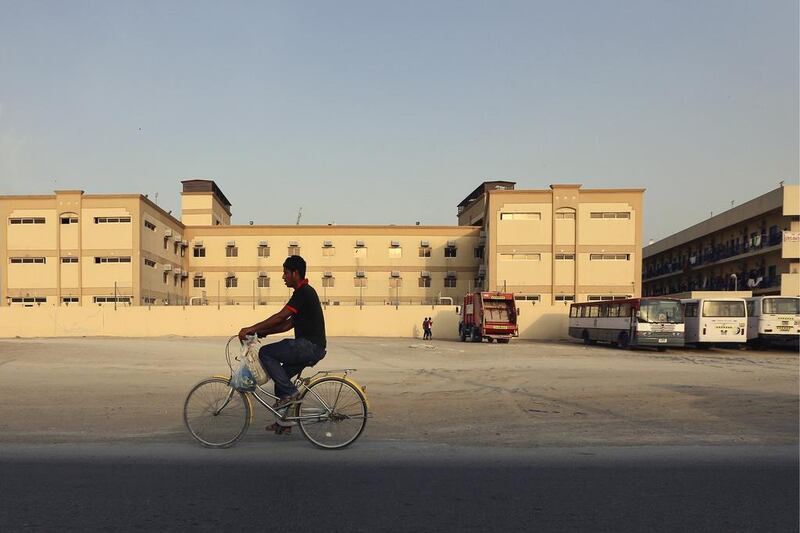A decree issued this month to ensure that workers paid below Dh2,000 per month must be provided free housing by employers is not likely to push up costs of worker accommodation in the UAE, according to experts.
The decree issued by the Ministry of Human Resources and Emiratisation states that any employer hiring more than 50 workers must provide free housing for staff is due to come into force in December this year. It follows on from an earlier decree issued in 2009 obliging firms employing more than 5,000 workers to provide free housing for low-paid staff.
Andrew Love, the head of investment and commercial agency at the property broker Cavendish Maxwell, argued that it did “not foresee this legislation impacting the demand for such facilities”.
He said most firms already provide accommodation for lowest-paid staff, and that standards were improving, particularly as the industries using them were diversifying. Labour accommodation was traditionally used to house construction workers, but hospitality and retail companies are also using purpose-built accommodation for staff.
“On the whole, the labour accommodation market is performing well. Demand and supply are in equilibrium,” said Mr Love.
“There does not appear to be a bubble in this market, which was evident during the past cycle where rents topped Dh5,000 for a four-man room,” he added.
Current rents for a four-man room range from Dh2,000-3,000 per month.
David Godchaux, the chief executive of Dubai-based Core UAE, an associate of Savills, also said that he did not believe there would be a spike in demand, saying that large employers are in a strong position to negotiate good rates, and even smaller companies are in a better negotiating position than employees.
He also predicted that it could lead to more investment in this sector, as landlords will find it easier and less risky collecting rents from a company than from scores of individuals, although it may have to provide discounts to compete.
“We may see new players enter the staff accommodation market because of this regulation and perception of increased supply,” said Mr Godchaux.
“This could put negative pressure on pricing if people think there is more supply. However, increased supply is only a perception.”
Mr Love said that more accommodation was likely to be built in Jebel Ali, where plots with freehold permission have been sold.
“Longer term, older accommodations, which are poorly located and not maintained well, will become increasingly obsolete. Unless repositioned, such accommodation will struggle to achieve market rents and are likely to have longer letting voids.”
mfahy@thenational.ae
Follow The National's Business section on Twitter







